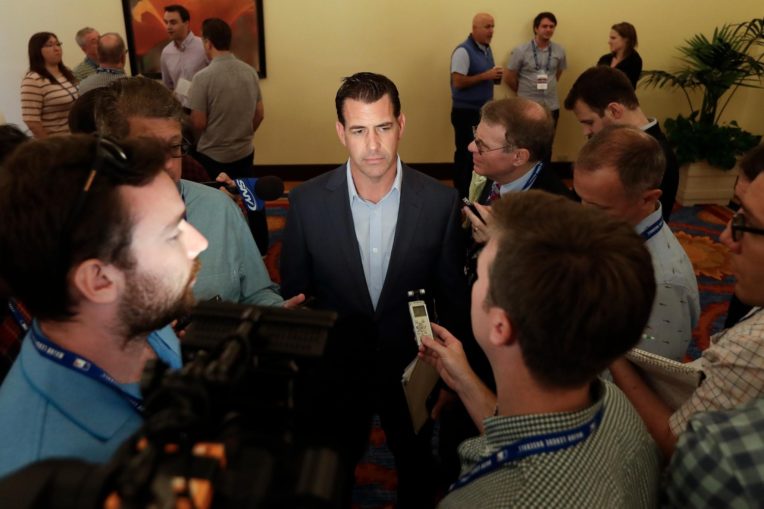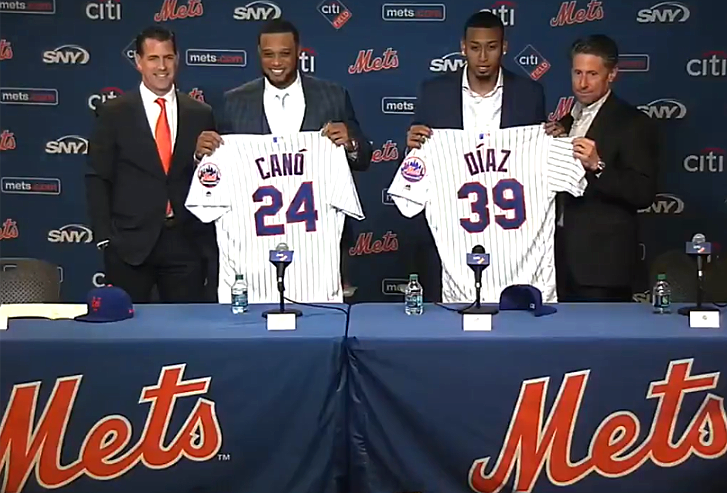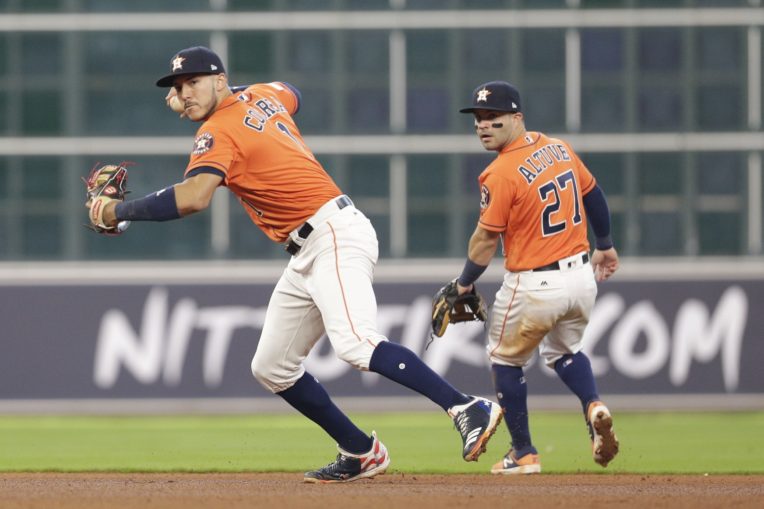
Photo: Mets.com
The “Dunning-Kruger” effect is a psychological effect in which someone with poor intelligence fails to recognize their own intellectual shortcomings as a result of said shortcomings and instead perceive their abilities as much greater than they actually are.
The most commonly cited example of this effect is the story of a man who, upon observing the “invisible ink” qualities of lemon juice, rubbed the stuff all over his face and attempted to rob banks under the genuine belief that the lemon juice would render him invisible to security cameras.
While I was unable to find any literature regarding this effect on an organizational level, I believe that I have an equally prime example for the workplace: the Mets.
This weekend, Mets GM Brodie Van Wagenen was busy as ever, swinging trades for J.D. Davis, Keon Broxton, and a pair of Indians minor leaguers using the Mets’ already thinning farm depth and Kevin Plawecki. Many questioned the sizable return for both Davis and Broxton, outfielders who have struggled consistently at the plate, as the Mets gave up multiple prospects with a considerable degree of upside.
The Mets’ two trade partners this weekend, the Astros and Brewers, are generally considered among the top teams in terms of investment in analytics. In terms of the size of their analytics departments, according to a survey conducted by The Athletics’ Eno Sarris and Marc Carig last summer, both teams have considerably more analysts working for them than the Mets, who were last in the National League in terms of the size of their analytics department and second to last in the majors.

Both the Brewers and Astros have placed a heavy organizational emphasis on analytics and been richly rewarded for it, whereas Mets owner Fred Wilpon has been described as willing to “blow his brains out” if forced to sit “in a room with a guy who had to explain to him analytics”. Even the Mariners’ organization, with whom Van Wagenen swung the Robinson Cano/Edwin Diaz trade, have more than double the analysts that the Mets have previously employed.
While the Mets have announced an additional hire to their analytics department, Adam Guttridge, this offseason, there has been no report of a dramatic analytics department overhaul, additional hirings, or anything representing a significant change in organizational philosophy. If anything, the opposite: I will again cite Mike Puma’s report that team officials believe that the team became too reliant on analytics, a truly bizarre line of thinking given that almost every other major league team is moving in the exact opposite direction.
Regardless of your feelings on analytics, empirically speaking, you must agree that the Mets are working with far less manpower and information in baseball operations than any of their trade partners thus far this offseason. Simply put, the Astros have magnitudes more people working on improving the team than the Mets do at the moment—identifying trade targets, brainstorming potential fixes for struggling prospects, scouting free agents, etc. The same could be said of the Brewers and Mariners as well. The Mets have come to the table at a significant disadvantage likely every time this offseason.

The Astros have a number of advanced proprietary models combining both scouting data and statistics used to evaluate prospects (according to Ben Reiter’s book, Astroball) and given the substantial talent that the Astros have graduated from their farm system in the past half decade, by results alone it appears to be a quite successful model. The Astros have been a well-run, competent, and extremely knowledgeable baseball organization for the past half-decade, and even despite the departure of assistant GM Mike Elias and analytics-guru Sig Mejdal, that trend looks to continue.
Meanwhile, there have been relatively few articles praising the Mets’ analytics department or any revolutionary work that they’ve put together. Just the opposite, really: for example, this Monday, Eric Longenhagen and Kiley McDaniel revealed that the Mets “don’t scout beneath full-season ball”. That the Mets lack this kind of important information for a significant portion of the minor league population is evidence enough that the Mets are operating with significantly less information than teams who have actually invested in the department.
That the Astros have decided to move on from Davis and asked for some improving low-minors prospects from the Mets, a team with comparatively little brainpower in the analytics department is immediately suspect. Like an adult trading baseball cards with a five-year-old, the only thing holding the adult back from completely swindling the five-year-old is a sense of morality—and since baseball operations departments do not have souls, that safeguard is not present.

It is not unreasonable to think that the Astros, one of the best teams in baseball in identifying and developing young bats, had done everything that they could to fix Davis (a player who they would have absolutely had space for, given their need for a corner outfield/utility bat with the departure of Marwin Gonzalez this offseason). To expect that the Mets might discover the secret sauce for Davis, sauce that the Astros missed out on, while utilizing significantly less information and total brainpower than Houston seems unreasonable—so the Mets are left only with the hope that Davis has merely been unlucky thus far in the majors.
In conducting baseball operations, based on the size of the department and the at-arms-length attitude towards analytics that appears prevalent in the organization, the Mets must realize that they have significantly less information than teams such as the Astros and Brewers, who are light years ahead of them in the analytics arms race. Even teams with mid-sized analytics departments like the Mariners still come to the table with a significant advantage over the Mets, being that they have more information than the folks sitting across the table from them—and they can be relatively confident in such an advantage.
The short-term fix for this is recognizing that disparity within the organization—something that has not yet occurred, given that the Mets have already dealt with the Astros this offseason. The Mets do not need to cease all trading until they substantially invest in their analytics department, but it would be best to avoid teams with the resources needed to significantly swindle them (like the Astros), as, given the opportunity, the Mets will be swindled every time.
But the long-term fix requires a more substantial investment—not merely that of dollars and cents, but also of confidence. The overall impression of analytics in the organization, according to external reports, is that of dismissal.
The relative cost of expanding the analytics and scouting department is magnitudes smaller than the cost of any free agent the Mets have signed this offseason, and their impact might be greater in terms of long-term outlook for the franchise, as Ben Lindbergh and Rob Arthur described for 538—and yet, the Mets have dodged making that expansion. If anything, they have cut corners (exhibited by their complete avoidance of scouting short-season minors).
The Mets do not value information. Many teams have recognized the importance of information and their early adoption of valuing it organizationally has reaped tremendous dividends. The Mets are rapidly falling behind the times, seemingly deliberately. If the Tampa Bay Rays can operate with 15 analysts, the Mets most certainly can as well—it is a clear choice by the organization to avoid investing in these departments.
The Mets were not always so behind the times—according to Adam Fisher, a former Mets baseball executive, the Mets were one of the earliest investors in analytics. However, they have allowed their investment to stagnate, and have, at times, even ignored analytics department (a move that backfired spectacularly). The Mets are far behind in the analytics arms race at the moment—but, as the Chinese proverb goes, “The best time to plant a tree was twenty years ago. The second best time is today.”
The Mets must realize the importance of information now, and do their best to acquire it. Otherwise, they will struggle to find a leg up on every other team in the majors.















